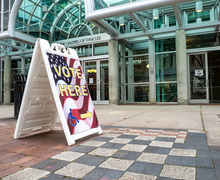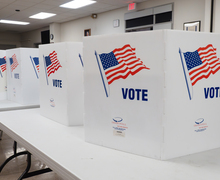Liberal : Children who commit crimes should not be tried as adults
A 13-year-old in Pennsylvania could be charged with murder and sentenced to life in prison. When Jordan Brown killed his victim in 2009, he was 11 years old. The victim was a 26-year-old pregnant woman. The woman was the fiancé of Brown’s father. The potential for him to be tried as an adult in this ongoing case exposes a major problem with our criminal justice system.
No matter how awful the crime may be, an 11-year-old should never be considered an adult. If he were tried as an adult and convicted, he may be the youngest person in the United States sentenced to life in prison. Amnesty International claims he would be the youngest child to ever be punished this way.
The popular argument in favor of life in prison is that the defendant knew right and wrong, and the 11-year-old knew killing this person was wrong. But this argument is misguided. It fails to recognize the developmental stage of the child. The basis of the argument rests in emotion and the sense of a need for justice. Allowing a person, no matter what his or her age, to escape harsh punishment would be wrong, according the argument.
Punishing young people who commit major crimes is the subject of a ‘Frontline’ program titled ‘When Kids Get Life.’ The documentary investigated what happens when young people are sentenced to life in prison and why they were given life sentences. The stories examined the lives of five imprisoned teenagers in Colorado. Several of the teenagers killed their parents in response to abuse, sometimes sexual.
Punishing teenagers – and potentially Brown – accomplishes very little. The American justice system aims at retribution, deterrence, rehabilitation and removal from society. In these cases, the system succeeds at retribution and removal from society but fails to deter or rehabilitate.
It does not deter because there is no way to fix the underdeveloped decision-making part of the brain. Teenagers cannot control how quickly their brains develop. Our system does not rehabilitate. Instead, it often gives up on teenagers and labels them as permanently dangerous.
When people under the age of 18 are convicted, we need to have a way to reform them, not leave them unproductive in our prisons. A symptom of our rehabilitation problem is the way we deal with people convicted of drug offenses. Those people go to jail for a short time and are not reformed. When they leave prison, they are unable to get a job because of their criminal record. Dealing drugs remains one of the best options for making money, which leads them to go to prison again. The cycle repeats itself. It is not constructive.
Our society strives for justice. However, penalizing an 11-year-old will hardly be just. There needs to be a standard definition of what an adult is. If citizens of the United States are unable to vote until age 18 and unable to drink until age 21, why does adulthood have a flexible definition? If an 11-year-old’s actions can be considered equal to an adult’s actions, we may want to lower the voting and drinking age to 11, as well. Brain development of an individual should be the primary factor in what we consider to be an adult. Jordan Brown is nowhere near an adult.
Harmen Rockler is a sophomore in the College of Arts and Sciences. His column appears online every Monday, and he can be reached at horockle@syr.edu.
Published on February 6, 2011 at 12:00 pm





